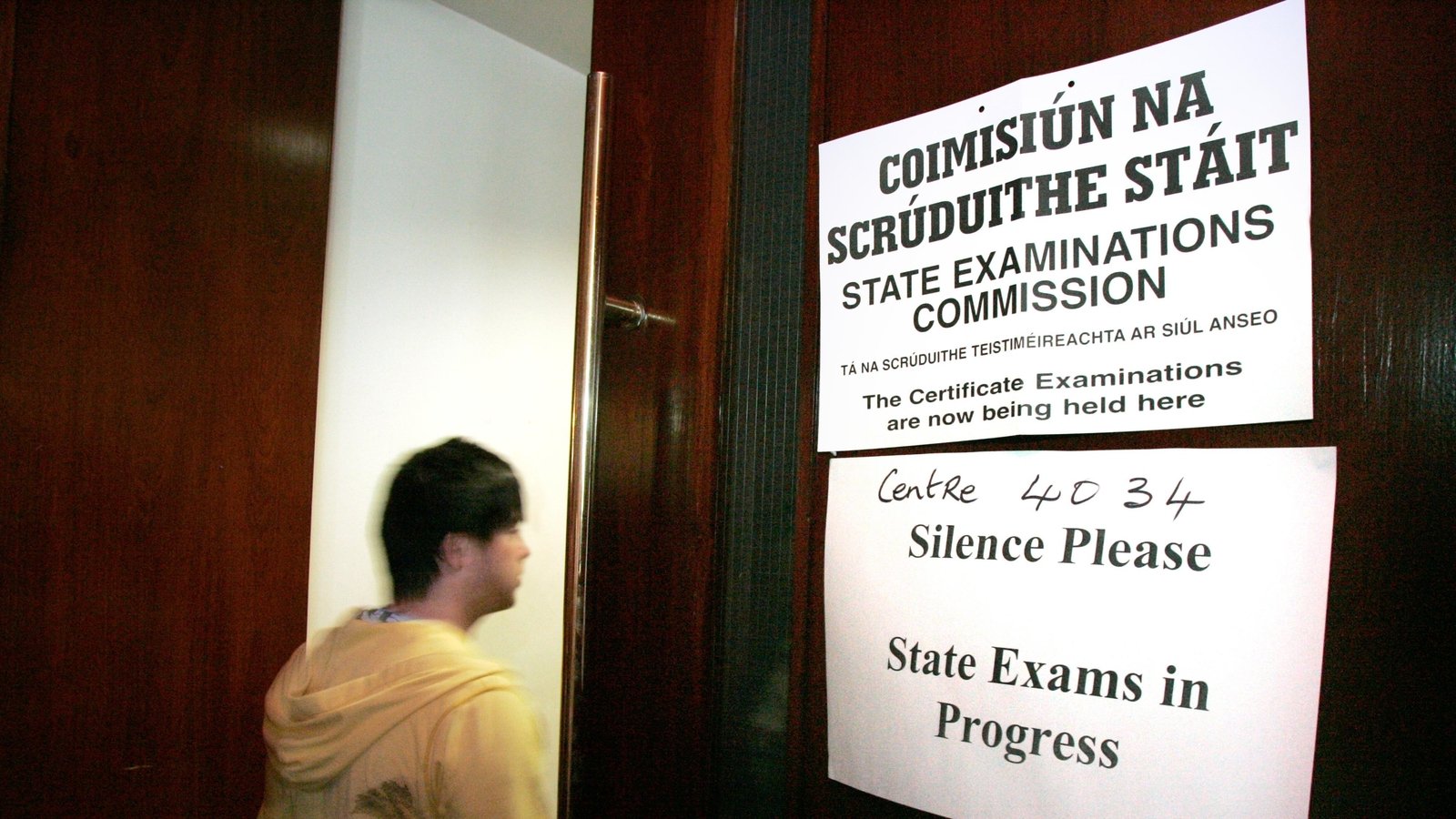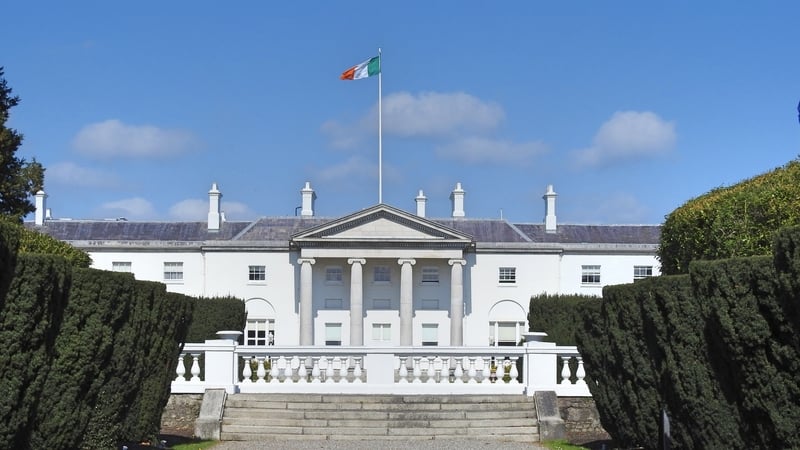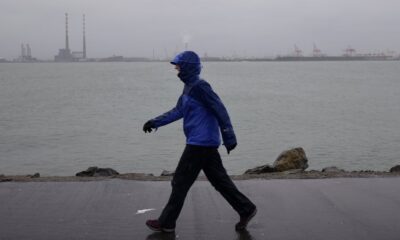Breaking News
3,935 individual Leaving Cert subject results upgraded

This post was originally published on this site.
This year’s Leaving Certificate appeals process has resulted in upgrades for 3,935 individual subject results.
Just over 10,000, or 16% of Leaving Cert Established candidates, appealed some of their grades this year, compared to 12.8% last year.
In all, they queried almost 20,800 individual subject results. That is 43% more than in 2024 and represents 4.7% of all grades awarded this year.
A total of 19% of appeals resulted in upgrades, and no marks were downgraded.
The results of this year’s Leaving Certificate Appeals will be available to candidates online from 11am.
In all, 42 candidates who did not appeal their results are in for a pleasant surprise. Every year the State Examinations Commission conducts its own quality assurance checks and this year those checks have resulted in upgrades for 42 candidates who did not lodge any appeal.
These unexpected changes in grades will be notified to the candidate’s school, as well as to the CAO and on the candidate’s SEC self-service portal.
The CAO is due to issue its Round 5 college offers next Tuesday and the outcome of this year’s appeals has already been sent to it.
The final number of upgrades, 3,935, represents less than 1% of all Leaving Certificate results awarded this year.
In the processing of appeals, the marking of each candidate’s work is fully reviewed question by question using the original marking scheme. The review is carried out by a different examiner to the one who originally marked the work.
While the appeals marking process took place as in any normal year, the process this year also had to allow for the reapplication of the post-marking adjustment to marks following the appeal marking.
When candidates access their appeal results they will see whether their examination mark changed on appeal and, if so, their new post-mark adjustment mark as well as their final grade.
Candidates who appealed examination results and wish to view their remarked scripts should apply to do so by 5pm on Monday 29 September.
Candidates may also refer their examination appeal to the Independent Appeal Scrutineers (IAS). Their function is to ensure that all of the examinations appeals processes outlined by the SEC have been carried out correctly.
Breaking News
Several dead in Israeli strikes on Houthis in Yemen

Read more on post.
Israeli strikes on Sanaa killed at least nine people and wounded more than 170 yesterday, Yemen’s Houthis said, a day after the rebels launched a drone attack on southern Israel.
Explosions were heard while plumes of smoke were seen rising from three locations in the Sanaa area, in the latest retaliatory attack since the Houthis began targeting Israel in the wake of the Gaza war.
Israeli forces hit several Houthi-linked targets in the rebel-held capital, Israeli officials said, warning of more attacks to come.
Houthi media said the targets included a detention facility.
The Israeli military later said “a missile launched from Yemen was intercepted”, with sirens blaring in central Israel.
Rescuers in Yemen were still searching for victims of Israeli strikes, which left “nine martyrs and 174 wounded”, Houthi health ministry spokesman Anees Alasbahi said in an updated toll on X.
The Houthis’ Al-Masirah television channel, citing a security source, said Israel “targeted one of the (security and intelligence) service’s correctional facilities, which houses a number of prisoners and detainees”.
Al-Masirah earlier said that a power station and two residential neighbourhoods had been targeted, sharing pictures that showed low-rise buildings with bombed-out windows.

One picture showed twisted metal and pieces of concrete filling the street as people looked on, with another photo showing people on the roof of a badly damaged building.
Israeli Defence Minister Israel Katz said the strikes “dealt a powerful blow to numerous terror targets of the Houthi terror organisation in Sanaa”.
They hit “several military camps… eliminated dozens of Houthi terror operatives, and destroyed stockpiles of UAVs (drones) and weaponry”, Mr Katz said on X.
The Israeli military said the targets included the Houthis’ general staff headquarters, as well as other security and intelligence sites including some used to store weapons and “plan and execute” attacks on Israel.
It added that the rebels’ “military public relations headquarters” was also targeted.
The military statement warned Israel would “conduct additional offensive operations against the Houthi regime in the near future”.
‘Severe response’
The Israeli strikes on Sanaa came moments before Al-Masirah began broadcasting rebel leader Abdul Malik al-Huthi’s weekly pre-recorded speech.
The Houthi authorities have previously warned Yemenis against publishing footage of locations hit in strikes, describing it as “a service to the enemy”.
On Wednesday, a drone attack claimed by the Houthis struck the southern Israeli tourist resort of Eilat after failed attempts by Israel’s air defences to intercept it.
Rescuers reported 22 wounded including two in serious condition.
Israeli Prime Minister Benjamin Netanyahu and Mr Katz warned of a severe response.
The Iran-backed Houthi rebels began targeting Israel with missiles and drones, as well as attacking vessels they deem linked to the country, after the 2023 start of the Gaza war.
The Houthis say they act in solidarity with Palestinians.
Israel in response has carried out strikes in Yemen, mainly targeting infrastructure such as ports, power stations and Sanaa’s international airport.
In August, Israel assassinated the head of the Houthi government Ahmed Ghaleb Nasser al-Rahawi together with other senior officials.
Israeli strikes killed 46 people earlier this month, according to Houthi authorities.
Breaking News
Race for the Áras: Candidates to continue canvassing

Breaking News
Starmer says Labour had ‘shied away’ from concerns over illegal immigration

Read more on post.
Sir Keir Starmer has said a new digital ID scheme will make it tougher to work in the UK illegally and offer “countless benefits” to citizens.
Plans for a compulsory UK-wide digital ID scheme will be announced officially by Starmer in a speech on Friday, as part of Labour’s push to address illegal immigration.
Separately writing in the Telegraph, the prime minister publicly acknowledged that left-wing parties, including Labour, “shied away” from concerns around illegal immigration.
He added that Labour was being forced to counter the “rise of the populist right”, noting the increasing popularity of Reform UK posed a challenge for both the Conservatives and the left.
His government has been under pressure to tackle the issue, with more than 50,000 migrants arriving on small boats since Labour came to power.
In announcing his plans for the new digital ID scheme, Sir Keir said: “I know working people are worried about the level of illegal migration into this country.
“A secure border and controlled migration are reasonable demands, and this government is listening and delivering.”
He added that “Digital ID is an enormous opportunity for the UK. It will make it tougher to work illegally in this country, making our borders more secure.
“And it will also offer ordinary citizens countless benefits, like being able to prove your identity to access key services swiftly – rather than hunting around for an old utility bill.”
“There is no doubt that for years, left-wing parties, including my own, did shy away from people’s concerns around illegal immigration,” Sir Keir wrote in the Telegraph.
“It has been too easy for people to enter the country, work in the shadow economy and remain illegally.”
There will be no requirement for individuals to carry their ID or be asked to produce it, Downing Street said, though digital ID will be mandatory as a means of proving right to work in the UK.
Employers already have to carry out checks on prospective candidates.
Shadow Work and Pensions Secretary Helen Whately criticised the scheme, she said it is going to “make law-abiding people have to jump through more hoops and employers have more red tape”.
She told BBC Radio 4’s Today programme that “illegal working in the grey economy will go on”.
The government said the roll-out will make it simpler to apply for services like driving licenses, childcare and welfare – as well as streamlining access to tax records.
It added that the new scheme will “send a clear message that if you come here illegally, you will not be able to work, deterring people from making these dangerous journeys”.
The new digital ID will be held on people’s phones, just as contactless payment cards or the NHS app used by millions.
Downing Street said the new scheme will “take the best aspects” of digital identification systems already in place in other countries.
In Australia, citizens can use their digital identification to access private services such as banking or buying alcohol, while students in Denmark can use their ID to retrieve education records and qualifications.
Digital ID has enabled parents to access child benefits, health records and applications for nursery schemes without having to provide the same information twice.
Meanwhile, the government said that India has saved around US $10 billion annually by reducing fraud and leakages in welfare schemes through their digital identification programme.
Sir Keir wrote that the government “must make and win the case for patriotic national renewal, based on enduring British values”, calling on “fair-minded Britons” to reject Reform’s “toxic” solution.
He also warned against the perils of “poisonous” online debate, and of a “coming struggle, a defining struggle, a violent struggle” for the nation.
Addressing the wave of protests that took place outside UK asylum hotels over the summer, the prime minister said his party would “reject the quick-fix solutions from those who want to divide” and instead focus on “restoring power to local communities”.
The government announced a £5bn funding boost for 339 “overlooked” communities on Thursday, with specific spending to be determined by those who “know their communities best”.
The announcement is part of Labour’s strategy to tackle the electoral threat posed to them by the rising popularity of Reform UK, and will include the £1.5bn pledged to 75 of the “most deprived” areas in the UK earlier this year.
Reform UK won big in local elections earlier this year, taking control of 10 councils as both Labour and the Conservatives suffered their biggest local election defeats.
Sir Keir is expected to defend his party’s approach to immigration in his speech on Friday, detailing the new digital ID scheme while laying blame for illegal immigration on what he has called the “Conservative government’s failure” over 14 years in office.
He will be addressing the Global Progress Action Summit in London on Friday. The summit will bring together progressive leaders, policy experts and strategists from across more than 20 countries.
The Institute for Public Policy Research, who are co-hosting the event, said the focus will be on “national security, growth that works for working people, migration in an age of global movement, and building fair societies based on solidarity and reciprocity”.
Labour’s annual party conference opens in Liverpool this weekend.
Conservative leader Kemi Badenoch has characterised the announcement as a “desperate gimmick” to distract attention from the “leadership manoeuverings” of Greater Manchester Mayor Andy Burnham ahead of Labour’s annual conference next week.
Reform denounced the plan as a “cynical ploy to fool voters that something is being done about illegal immigration”.
The Liberal Democrats, who played a central role in blocking the previous Labour government’s ID cards, have said they “cannot support” a mandatory scheme.
-
Culture3 days ago
Taylor Swift’s new cinema outing generates more than €12million in just 24 hours
-
Politics3 days ago
European Parliament snubs Orbán with vote to shield Italian MEP from Hungarian arrest
-
Health4 days ago
EU renews support for WHO’s Universal Health Coverage Partnership
-
Culture3 weeks ago
Life, loss, fame & family – the IFI Documentary Festival in focus
-
Environment6 days ago
Key oceans treaty crosses threshold to come into force
-
Culture3 days ago
Twilight at 20: the many afterlives of Stephenie Meyer’s vampires
-
Culture1 week ago
Farewell, Sundance – how Robert Redford changed cinema forever
-
Culture2 months ago
Fatal, flashy and indecent – the movies of Adrian Lyne revisited










































